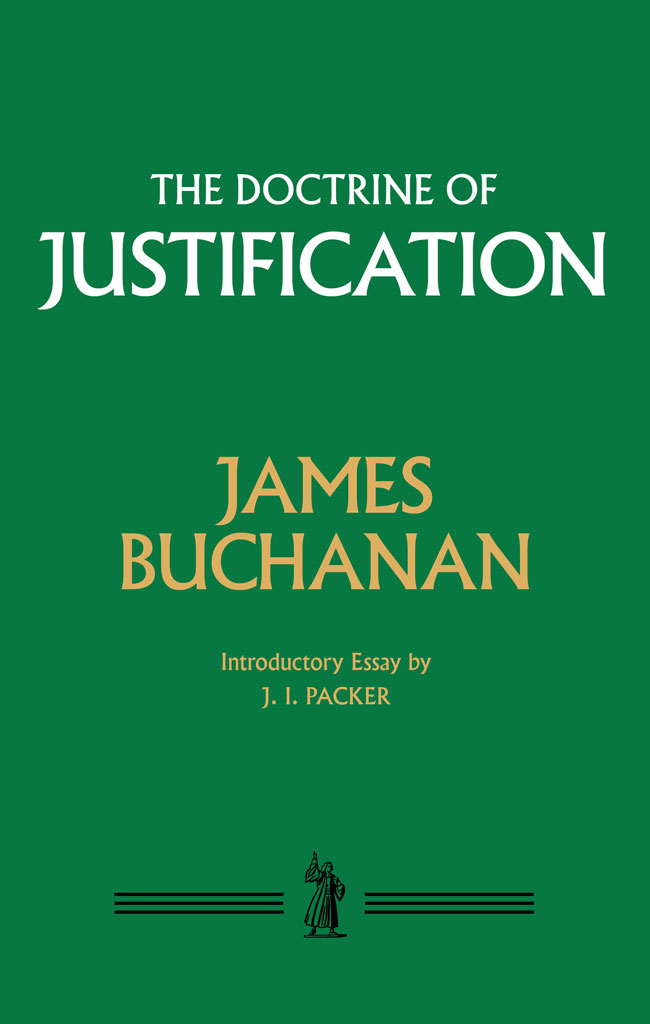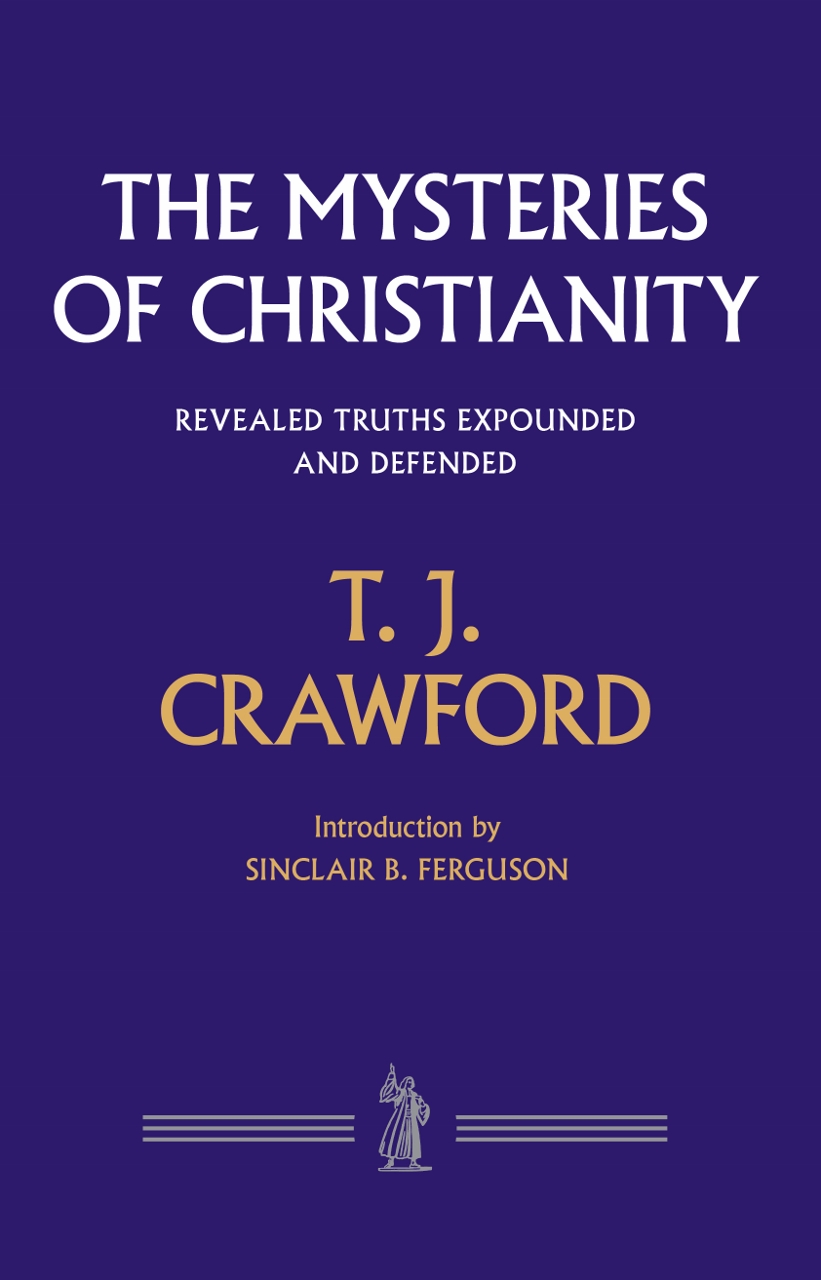The Greatest of All Questions (Review of The Doctrine of Justification)
The doctrine of justification is undoubtedly among the most important and most disputed doctrines in the history of the Christian Church. Central to the recovery of the faith once delivered to the saints at the time of the Reformation, it has been at the centre of assaults on that faith ever since. These assaults continue in the present day, not only in the widespread Arminianism within Protestant churches, but also in the New Perspective on Paul and the widespread universalism in pulpits where once the Calvinism of the Reformed creeds was the only standard of orthodoxy.
Martin Luther asserted that ‘if this article [of justification] stands, the church stands; if this article collapses, the church collapses’.1 The volume under review confirms this assertion to be true and should be an essential starting place for any preacher desiring to understand the history of the doctrine or seeking a fresh and biblical exposition of it. It will also prove to be a most profitable study in the doctrine of the gospel for any reader seeking an answer to that greatest of all questions, How shall a man be just with God?
Dr James Buchanan (1804-1870) was a leading Disruption divine and Professor of Systematic Theology at the New College in Edinburgh after the death of Dr Chalmers in 1847. A brief biographical sketch gives the main events in his life. It also highlights the change that had come over the late-nineteenth-century Free Church, relating how William Robertson Smith and Marcus Dods – two infamous heretics of the period – found his lectures tedious and ‘painfully prolix’. The sketch by Charles Walker and the useful introduction by Dr James Packer (prepared for the 1961 edition) correctly identify Buchanan’s peerless contribution to the defence of the Westminster doctrine, most notably in the face of false teachers arising within the Church itself. The history of the Free Church, and of the Protestant Church in general, since the emergence of the German Higher Criticism, has fully justified Luther’s identification of this doctrine as the test of a standing or collapsing church.
The volume is divided into two main parts – the first dealing with the history of the doctrine and the second with its exposition. The first part is a series of seven lectures covering, in fairly rapid survey, the doctrine in the Old Testament and Apostolic periods, through the Scholastic and Reformation times, before dealing with its history ‘in the Romish Church after the Reformation’, considering it as a ‘Subject of Controversy in Protestant Churches’, and giving a ‘History of the Doctrine in the Church of England’. In this survey, the main attacks made on the doctrine and the defences raised to counter these, are thoroughly handled. While some readers may prefer to go directly to the second part of the treatise, this first part of the volume will repay careful reading. A few interesting observations in connection with the history of the doctrine may be worth mentioning.
Concerning the early Church Fathers, Buchanan argues that they found the doctrine of justification ‘an established and unquestioned article of the common faith, and they assumed and applied it in all their writings, without thinking it necessary to enter into any formal explanation or proof of it’ (p. 78). He brings out that the Reformers held in common ‘whatever is essential and fundamental in the question of justification’, particularly the four points: the nature, the ground, the means, and the effect of it (p. 107f), noting that ‘few things in the history of the Church are more remarkable than the entire unanimity of the Reformers on the subject of a sinner’s justification before God’ (p. 141).
Buchanan concludes that their teaching of justification ‘imparted immediate relief and comfort to many anxious and distressed consciences . . . and proved at many a homely hearth and in many a monastic cell – in some, even of the palaces of princes – that it was still, as of old, ‘the power of God unto salvation’’ (p. 118). Identifying a ‘widespread and growing defection from the old theology of the Reformation’ in the Church of England, Buchanan accurately diagnoses the disease. Among several causes mentioned is ‘the leaven of Arminian and Pelagian error . . . imbibed by many who continued to adhere to the Thirty-Nine Articles’ (p. 186). This familiar evil, and other external causes, together with the ‘natural Popery of the human heart’ will ever be a source of danger to Reformed Churches.
The second, and arguably more readable part, consists of a further seven lectures divided into 33 propositions. It is no exaggeration to say that these propositions masterfully present the full-orbed gospel of the Christian Church, and act as a bulwark against every species of error and deceit arrayed against it. Introducing his subject, Buchanan makes the insightful remark:
The best preparation for the study of this doctrine is neither great intellectual ability, nor much scholastic learning – but . . . a conviction of the fact of sin, as an awful reality in our own personal experience; of the power of sin, as an inveterate evil cleaving to us continually, and having its roots in the innermost recesses of our hearts; and of the guilt of sin, past as well as present, as an offence against God which, once committed, can never cease to be true of us individually, and which, however He may be pleased to deal with it, has deserved His wrath and righteous condemnation (p. 208).
Dealing with the meaning of the term, the nature of the blessing, and its relation to law and justice, he then considers justification in its ‘Relation to the Mediatorial Work of Christ’. He then deals with its ‘Immediate and Only Ground – the Imputed Righteousness of Christ’. The study then goes on to deal with the deeply practical subjects of its ‘Relation to Grace and Works and its Connection with Faith’. Perhaps readers will be encouraged to pursue these lectures fully if the terms of the propositions 25-29 concerning the nature and reason of the connection between justification and faith are given:
‘We are justified by faith, and faith is counted or imputed to us for righteousness; but faith is not itself the righteousness on account of which we are justified.’
‘The faith by which we are justified is a spiritual grace – as being the gift of God and one of the fruits of his Spirit – and, as such, is acceptable and well-pleasing to Him through Jesus Christ.’
‘A real influence or efficacy is ascribed to faith in connection with our justification, but it is such only as belongs to a divinely appointed means of receiving and appropriating a free gift.’
‘The only warrant of faith is the Word of God, and that Word is sufficient, not only to entitle every sinner to receive and rest upon Christ for his personal salvation, but to make it his duty to do so without delay.’
‘We are justified by faith only, simply because it is by faith and by no other grace that we believe the truth concerning Christ and rely on Him alone for salvation as He is freely offered to us in the gospel’ (pp. 340-359).
Some of the 33 propositions are dealt with briefly, in no more than a page, others cover 10 or 12 pages. Many useful distinctions are made, including an eminently helpful discussion of the distinction between justification and adoption, in which he asserts, ‘Pardon, acceptance and adoption are distinct privileges, the one rising above the other in the order in which they have been stated’ (p. 244). The essential distinction between justification and sanctification is addressed fully in both parts of the work, but Buchanan makes clear that ‘regeneration and justification are simultaneous; and no man is justified who is not renewed, nor is any man renewed who is not also, and immediately, justified’ (p. 370). In the final lecture, on the ‘Relation [of Justification] to the Work of the Holy Spirit’, Buchanan explains that, ‘by the agency of the Holy Spirit, who works faith in us by enabling and persuading us to receive and rest upon Christ alone for salvation, we are united to Christ; and by our union with Him, we are made partakers of all the blessings which He died to purchase and is exalted to bestow’ (p. 371).
It would be eminently useful for present-day preachers to re-acquaint themselves with this classic work on the great Reformation doctrine of justification. It would doubtless affect their own study of the Word and their emphasis in preaching. It would also, with the blessing of God, strengthen the walls of Zion against the old Popish and Arminian heresies on the subject, in whatever guise they resurface. Other readers will glean valuable insights which will greatly aid their understanding of the doctrine. This reprint, which includes invaluable notes in appendices, benefits greatly from being entirely retypeset and has all the features of quality which we have come to expect from Banner of Truth publications.
This article first appeared in the February 2018 edition of the Free Presbyterian Magazine and has been reproduced with permission.
Of Further Interest

The Doctrine of Justification
An outline of its history in the Church and of its exposition from Scripture
Description
The doctrine of justification is undoubtedly among the most important and most disputed doctrines in the history of the Christian Church. Central to the recovery of the faith once delivered to the saints at the time of the Reformation, it has been at the centre of assaults on that faith ever since. These assaults continue […]

Description
The doctrine of justification is undoubtedly among the most important and most disputed doctrines in the history of the Christian Church. Central to the recovery of the faith once delivered to the saints at the time of the Reformation, it has been at the centre of assaults on that faith ever since. These assaults continue […]

The Mysteries of Christianity
Revealed Truths Expounded and Defended
Description
The doctrine of justification is undoubtedly among the most important and most disputed doctrines in the history of the Christian Church. Central to the recovery of the faith once delivered to the saints at the time of the Reformation, it has been at the centre of assaults on that faith ever since. These assaults continue […]
Latest Articles
Finished!: A Message for Easter March 28, 2024
Think about someone being selected and sent to do an especially difficult job. Some major crisis has arisen, or some massive problem needs to be tackled, and it requires the knowledge, the experience, the skill-set, the leadership that they so remarkably possess. It was like that with Jesus. Entrusted to him by God the Father […]
Every Christian a Publisher! February 27, 2024
The following article appeared in Issue 291 of the Banner Magazine, dated December 1987. ‘The Lord gave the word; great was the company of those that published it’ (Psalm 68.11) THE NEED FOR TRUTH I would like to speak to you today about the importance of the use of literature in the church, for evangelism, […]
